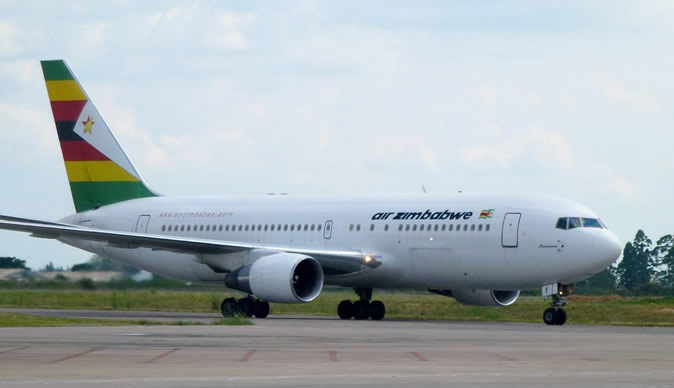- WICKNELL CHIVAYO left school at 15
- DISGRUNTLED Zimbabwe police stage uniform protest.
- MNANGAGWA wife Auxillia drops charges against nine women who boed her in Manicaland
- O.J. Simpson dies of cancer , aged 76.
- South Africa ANC is the cause of ZIMBABWE troubles claims Zimbabwe opposition politician Job Sikhala
Indigenisation Policy, Waived To Aid Recapitalisation Of Struggling Air Zimbabwe, Now US.300 Million In Debt

Enacted in 2008, indigenisation regulations compel all foreign- owned businesses to cede 51 percent of their shareholding to black Zimbabweans.Transport minister Joram Gumbo on Thursday said the country’s black empowerment laws will not apply to Air Zimbabwe, as government intensifies efforts to secure an investor for the national flag carrier.
“In regards to the Air Zimbabwe issue, as has been explained by the president, aviation is not a resources sector so indigenisation will not apply when a technical partner for Air Zimbabwe comes on board,” he told delegates at the International Air Transport Association (Iata) Day commemorations in the resort town.
“There are situations where an investor comes, say into mining, the resource will eventually get finished at some stage, hence the 51-49 law.
“But in the Air Zimbabwe situation, we are asking partners to bring in their money, so the law is applied differently here,” he said.
Gumbo noted that his ministry has identified 12 potential technical partners for Air Zimbabwe.
The State-owned airline, which needs about $260 million in new capital, has over the past few years been in talks with several potential investors.
The Zanu-PF legislator also said the new investor was not going to be burdened with the over US$300 million Air Zimbabwe debt, adding that government was moving to introduce an an Air Zimbabwe Debt Assumption Bill.
“Government will take over the debt. A new partner will come in at par.
“We do not want a situation where the investor has to service debts incurred before their time,” he said.
Aviation experts, however, believe the national flag carrier must not be allowed to collapse due to its strategic importance in the local tourism industry.
Zimbabwe’s tourism industry has the capacity to contribute billions annually in tourism receipts, but is being hampered by destination inaccessibility, high taxes and high product costs.